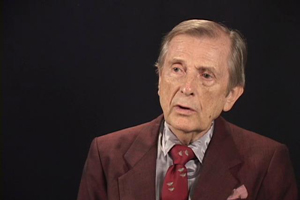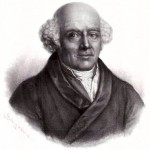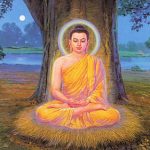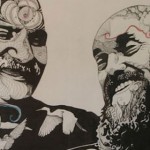Professor of Psychology and well-respected researcher Dr. Stanley Krippner explains how his research supports the reality of precognitive dreams.
 Join Skeptiko guest host and paranormal dream expert Andy Paquette for an interview with legendary psychology researcher Dr. Stanley Krippner.. During the interview Dr. Krippner discusses whether or not the evidence for paranormal dreaming is well established:
Join Skeptiko guest host and paranormal dream expert Andy Paquette for an interview with legendary psychology researcher Dr. Stanley Krippner.. During the interview Dr. Krippner discusses whether or not the evidence for paranormal dreaming is well established:
Andy Paquette: You’ve been studying dreams for the most part for the majority of your career. Do you feel that the case for precognitive dreaming is proven?
Dr. Stanley Krippner: No, I don’t think anything in science is proven. Science is always open-ended. There’s always a chance of revising scientific theory based on new data.
Andy Paquette: Of course, that would work both ways, as well, wouldn’t it? So what you’d really be talking about is what does the currently available information indicate?
Dr. Stanley Krippner: That’s right.
Andy Paquette: And in your case, from what you’ve seen, what do you think the currently available information indicates?
Dr. Stanley Krippner: I think you can make a strong case for precognitive dreams.
Alex Tsakiris: Today we’re joined by Andy Paquette, who is a former Skeptiko guest and is also the author of Dreamer: 20 Years of Psychic Dreams and How They Changed My Life. Now, Andy is joining us today because he recently attended the 2011 Study of Dreams Conference in The Netherlands, where he was also a presenter. While he was there he was nice enough to snag a couple of interviews for us and he’s here to share them with us. So Andy, welcome and tell us what you’ve been up to.
Andy Paquette: I just got back from a few very beautiful, sunny days in Kerkrade, which is a little tiny town in The Netherlands that basically has as its centerpiece this enormous old monastery that I think was built about 1,000 or 1,100 years ago or something like that, where we had the IASD Conference.
It was the first time I’d ever been there and one of the things I wanted to do, if for no other reason but just to see what would come of it, was to see if I ran into anyone who agreed to being interviewed for Skeptiko that I happened to think might be interesting to interview for Skeptiko. And as a result of being there and having things to do and not having things to do at certain times, I finally ran into a couple guys who I thought were worth interviewing.
There’s Dr. Stanley Krippner who is somewhat of a target because I wanted to interview him from the beginning, and two guys I hadn’t heard of before but who were doing a presentation on quantum mechanics as an explanation for certain types of dreams. Since that’s a topic that crops up on Skeptiko fairly often, I thought, ‘Well, let’s talk to these guys and find out what’s going on.’
I’m just going to admit this to everybody: I didn’t know anything about quantum mechanics. I’ve read about it; I’ve seen some of these explanations, but somehow they all went over my head. I figured I’d just talk to these guys and get it all sorted out once and for all and for all those people on the forum who likewise didn’t really understand the argument so they’d know what it was, also. So that was the main thing I wanted to do.
Alex Tsakiris: Great. Why don’t you set up first and tell us a little bit about who Stanley Krippner is and then we’ll go ahead and play your interview with him.
Andy Paquette: Okay. Dr. Stanley Krippner has been researching dreams for about 50 years. I said that in the interview and he didn’t argue with me. I think that’s about the right number. I believe he started in the 60s or so. I think he’s the founder or the president of the Saybrook Institute in the United States which studies dreams.
He’s done a lot of work on paranormal dreams. He’s written lots and lots of books. He’s also been a co-author on at least a dozen others. His most recent book is Debating Psychic Experience. It’s a collection of essays by various skeptics and proponents of paranormal studies. So that’s Stanley Krippner. Sorry for the long introduction.
Alex Tsakiris: No problem. Here we go:
Andy Paquette: I’m here today with Dr. Stanley Krippner of the Saybrook Institute, a writer of numerous books on the subject of dreams. In particular, he’s written a number of books about paranormal dreams and he’s just recently come out with Debating Psychic Experience, which is a book that includes numerous articles by skeptics and proponents on the subject of paranormal phenomena in general. This is Andrew Paquette for Skeptiko.com.
Dr. Krippner, I want to start by asking you, do you feel that as far as anyone who has actually looked at the data is concerned, the argument about whether or not paranormal phenomena is genuine is over?
Dr. Stanley Krippner: No, of course not. In the field of controversial science, different people can make different judgments about the data. The controversy will not be over until enough evidence one way or the other is accumulated so that there is no more debate. And even then it won’t be over.
Take a look at the theory of evolution. As far as I’m concerned, the evidence for evolution is overwhelming and it’s something that I don’t think even deserves an argument. However, there are some people who do not accept the evidence for evolution, who think that the evidence for evolution is badly flawed, who have other explanations for fossil evidence and for biological evidence and so they would tell us that the debate over Darwinian evolution is not over.
So in many ways, it depends upon a person’s perspective and one must look at the credentials of the persons making the argument. Now I don’t think the credentials of the people making the argument against evolution are very impressive.
Another example would be global warming. Most of the people like myself, who think that global warming is a real phenomenon, would say that the evidence is overwhelming. However, there are a few people with very, very solid credentials who do not accept the evidence for global warming. So that debate is still going on at a higher level because of the small group of people with good backgrounds in biology, geology, meteorology, who do not accept the evidence that the Earth is getting warmer and warmer and that human activity has something to do with it.
You get into a field like parapsychology and the debate is wide open with outstanding people on both sides of the argument who take different positions.
Andy Paquette: Let me ask you something about the connection between biology and consciousness, which seems to be at the heart of many contra-arguments regarding parapsychological phenomenon. For instance, we had some gentlemen today who were talking about quantum mechanics and how that can explain things like telepathy and precognition. Do you feel that such arguments are actually undermined by data put together by people like Dr. Ian Stevenson, which tends to suggest an external consciousness, non-body based?
Dr. Stanley Krippner: Well, I see no conflict between biology and non-local consciousness. I think that biology can be at the base of all consciousness, whether it’s local or non-local, internal or external. So I personally don’t see the argument. However, I would say that some friends of mine would see an argument and they would say that if something is not biologically based in the way that they look at biology, it’s something that cannot be seriously considered or accepted.
Andy Paquette: Do you have a personal opinion on whether consciousness is actually a brain-based phenomenon or if it’s external?
Dr. Stanley Krippner: I think it’s both.
Andy Paquette: Now that’s interesting. How do you explain that?
Dr. Stanley Krippner: Well of course consciousness is brain-based. I think that one can explain a great deal of what happens in consciousness by looking at the substrates in the brain’s neurology and neural chemistry. However, remember that there are many people who look at brain-based consciousness as something where quantum mechanics is interacting and that there’s actually quantum activity within the microtubules of the brain.
And whenever you bring in quantum mechanics you open the door to non-local consciousness and you open the door to an explanation of, as you say, Ian Stevenson’s book of telepathy, clairvoyance, and other phenomena as well. So again, it depends upon how solid a person’s argument is and whether their argument covers the bases and explains all of the phenomena that they are trying to explain.
Andy Paquette: I want to make one clarification there because you mentioned Ian Stevenson’s book with telepathy which I am familiar with but the Skeptiko listeners have also been debating his work on reincarnation quite a lot. It seems it may actually be a stronger argument against a physical-based consciousness. Do you have an opinion on that? Provided, of course, that you want to accept Stevenson’s interpretation.
Dr. Stanley Krippner: I think that Stevenson’s work is very impressive and he’s not the only one who has found these examples of people in this life who claim to remember incidents from a past life. However, I don’t use the word “reincarnation.” I think that the information about past lives might be a form of what we might call post-cognition, of coming up with information after the fact. Going into the past to get information that’s not ordinarily available.
Andy Paquette: Are you thinking of this as some kind of telepathic information-gathering?
Dr. Stanley Krippner: Closer to telepathy and clairvoyance, yes. And I don’t really see it therefore as being esoteric in terms of a person’s karma, a person’s progression from past lives. All of that is a little too esoteric for me. I would rather stick to the simplest explanation as possible for work like Stevenson’s work on people who remember incidents from somebody else’s life that they have no ordinary way of knowing about.
Andy Paquette: Let me ask you this about Stevenson’s work. As a scientist yourself who’s been working for—gosh, it’s an awfully long time now, at least 50 years.
Dr. Stanley Krippner: Yes.
Andy Paquette: You must have formed some kind of opinion of Stevenson’s credentials. How do you feel about those?
Dr. Stanley Krippner: Well of course, Stevenson has excellent credentials. And many of the people who don’t accept Stevenson’s work also have excellent credentials. So here we’re dealing with a debate between people who both know what they are talking about. That’s one reason that the debate is very, very interesting to me. Because the people on both sides of the debate really are very well versed in biology and in memory and in human capacities.
Andy Paquette: What would you say to someone who complained that it was possible Stevenson overlooked such explanations as a translator colluding with the informant? Do you find that to be a credible type of explanation?
Dr. Stanley Krippner: For an example I would say, can you spell out how that could be the case because then so many translators and so many informants, hundreds of them in Stevenson’s cases–he has in his database at least 500 cases—and you’d have to say every one of those translators is in collusion with every one of the informants. That, to me, is really stretching the limits of credibility.
Andy Paquette: Now, in your own work you’ve been studying dreams for the most part for the majority of your career. Do you feel that the case for precognitive dreaming is proven?
Dr. Stanley Krippner: No, I don’t think anything in science is proven. Science is always open-ended. There’s always a chance of revising scientific theory based on new data. So in the English language–I don’t know what it’s like in Dutch–but in the English language I don’t think you should use “proof” when you’re talking about science. You can use the word proof when you’re talking about logic and proving theorems. You can talk about proof when you’re talking about whiskey and the percentage of proof that indicates how strong the whiskey is. But you can’t use the word proof when talking about science.
Andy Paquette: Of course, that would work both ways, as well, wouldn’t it? So what you’d really be talking about is what does the currently available information indicate?
Dr. Stanley Krippner: That’s right.
Andy Paquette: And in your case, from what you’ve seen, what do you think the currently available information indicates?
Dr. Stanley Krippner: I think you can make a strong case for precognitive dreams.
Andy Paquette: Okay. And in the case of other types of paranormal phenomena, would you say that the currently available information is generally favorable towards paranormal explanations?
Dr. Stanley Krippner: First of all, I don’t use the word “paranormal” because I think that all these phenomena are normal. I just don’t think that we have the equipment or the theories to explain them at this point in time. So I don’t like to use the word “paranormal.” But that’s a personal preference. I would say that the evidence is stronger for some phenomena than it is for others.
Andy Paquette: After publishing your recent book, Debating Psychic Experience, have you managed to get any feedback on that from both the critics and the skeptics?
Dr. Stanley Krippner: Yes, I certainly have. Many of the skeptics and critics and counter-advocates like the book very much. They think that the proponents have put forth the best possible case and I think that the critics have put forth the best possible case. The people that I’ve talked to about the book think that it’s very solid and that it’s, as one of them said, “The best collection of articles in one volume that will help people to stake out their own position.”
Andy Paquette: Do you find yourself getting brought into the kind of conversations that you find in that book oftentimes in your research activity? Or do you manage to avoid that just by staying focused on your work?
Dr. Stanley Krippner: Well, I don’t really make a big point of arguing in favor of parapsychology because I do think that the critics can make a very strong case. I would much rather argue in favor of Darwinian evolution. I would much rather argue on the issue of global warming, where I have very strong opinions and where I think that the opponents of these positions do not have available evidence. But I think that in the case of parapsychology, it’s an issue where I can really see both sides of the question.
Andy Paquette: The reason I was asking is that that book focuses on the issue of whether this kind of thing is genuine, whereas it seems to me that your research interests are less about whether it’s genuine than what it is and what’s going on. Is that true?
Dr. Stanley Krippner: Yes, that’s a good way to put it.
Andy Paquette: Okay. So how do you feel about the fact that certain types of skepticism, which I think you might have even called “scientism”…
Dr. Stanley Krippner: I haven’t, no. Some people have but I have not.
Andy Paquette: Yeah, and they stop the debate at the question of whether it’s genuine and will not proceed further. Do you see a way around that so that things can proceed?
Dr. Stanley Krippner: When a person has a closed mind there is no way around it because you cannot open a mind that is closed. I think one has to look for people who are open to debate, open to consider the possibilities, and open to enter into dialogue.
Andy Paquette: Okay. We didn’t have very much time to talk today but I really appreciate your being willing to participate.
Dr. Stanley Krippner: Well, I would urge your English language listeners to go to Amazon.com and order our book, Debating Psychic Experience, edited by myself and Harris Friedman, with contributions by outstanding people on both sides of the fence.
Andy Paquette: Terrific. Thanks a lot, Dr. Krippner.

























































